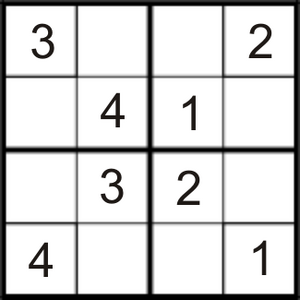I’ve been told the English language is the most difficult one to learn. That’s hard for me to understand since I already know it and I have little difficulty with it. I have always thought one of the character languages would be more challenging; Japanese, Chinese and so on. I know some of the puzzling idiosyncrasies of the English language; the ones we all know. For instance for, four and fore. How do you teach those? Faced with puzzles like that, as a grade school student, I may agree on the “hardest to learn” idea.
Whatever the difficulty level, it will all be new to the new reader. Just the idea “new” can equate to difficult. There must be something we can do to make this “new” thing a little easier to grasp. There is, we play games. All kids like to play games. Give them a goal and let them play a game to get there and they will all participate.
1) One of the most familiar and perhaps most common word games or vocabulary games is finding all the words you can inside another very familiar word. For instance, write the word HALLOWEEN at the top of a paper with two columns of lines on it and ask the student to write down all the two letter or bigger words they can find inside Halloween. Hall, all, owl, low and so on. When the student starts finding words like allow, wean and halo then they are stepping outside of the usual vocabulary ring. This little exercise doesn’t have them using the words in any application but at least they are seeing them.
When time is up collect the sheets and read some of the words. As you read them ask the students, one at a time, what the word means. When somebody stumbles on one, and nobody can help him or her out, you explain what the word means and use it in a sentence. The students have found the meat of their own study lesson for that day.
2) Another very fun game for vocabulary is word find. Before class you make a word find diagram on a sheet of graph paper. Make a large diagram perhaps 25 squares by 25 squares. Select at least a dozen words you would like them to find. These should be words that you want to work into the studies for the day. Then write those words into your 25 square by 25 square grid; one letter per square. Write them diagonally, up and down, forwards or backwards, just keep the letters in the proper sequence.
Fill the rest of the diagram with unrelated letters, making some of the extra letters appear to be a portion of the word you have already entered, so they actually have to hunt to find them; that’s the game part. Same as with the other exercise; when time is up, collect the papers, read the words one at a time and have someone explain what each word means. When they all stumble you explain the meaning and use the word in a sentence.
3) A little more difficult, but very effective, is a word game that involves you making a list of say 12 words and/or phrases that are all in the same category as far as meaning. Assign each of these words a position number, 1 through 12. The number 12 means the word that most reflects one end of the category and the number 1 spot is the word that most reflects the other end of the category. For instance words or phrases that mean how often a certain activity occurs. Let’s assign the words “Always” and “Never” to the two ends of the category, numbers 1 and 12. Then fill the ten spots in between with words that are used to depict how often something happens. As your remaining ten words get closer to meaning what the number 12 word means, their number assignment is larger. As they near the number one assigned word their number gets smaller.
A list I use goes like;
Never = 1, Rarely = 2, Seldom = 3, Occasionally = 4, Sometimes = 5, Often = 6, Usually = 7, A lot = 8, Most of the time = 9, Quite Often = 10, Almost always = 11, Always = 12.
Mix the words up, without their numbers, and write them on a piece of paper, in a column. Have an empty column next to the words and have the students assign their own numbers. Grade them on how close they get to the right answer. Granted, there may not be an absolutely correct answer but the exercise of trying to get there will cause them to think about the idea of words or phrases meaning something different about the same concept. Once they are told what the “correct” answer is, they will probably even question that determination. This is very good brain exercise for understanding word concept and intent.
I’m a man who appreciates direct answers. When my son was younger, pre-teen years, his friends had a habit of saying “I don’t care” when asked if they would like something or not. I didn’t like the answer because I didn’t know what to do with it. You mean you don’t care if you get a soda or not when my son is drinking one in front of you? So I made myself a list with Yes at one end and No at the other. Of course, what could be expected is that “I don’t care” ended up right in the middle.
I explained this approach to my son and I used it with his friends from that point on. Just imagine the surprise on his friend’s face when I asked him if he would like a milkshake and he answered with “I don’t care.” So I didn’t get him one. He didn’t care if he had one or not so why not save my money and not get him one. The next time my son was with one of his friends and they were in the position of getting something, my son quickly explained to his friend that he had better answer yes or no because his Dad needed a true answer.
It’s no more than everybody having the same concept of words and phrases actually mean. When we say we Never do something, do we really mean Never or maybe rarely.
Word games are fun; they can be very rewarding. In all cases if you feel like you want to give an award to the first one done or the one with the most words or the most right answers, make certain it is a recognizable award. Don’t give everyone the same award. If you are going to have a winner, don’t make winners out of everybody. If you do, you will be showing the slower ones that it doesn’t matter if you get it or not, you are still going to get a prize. There will be no reason for them to try harder.




